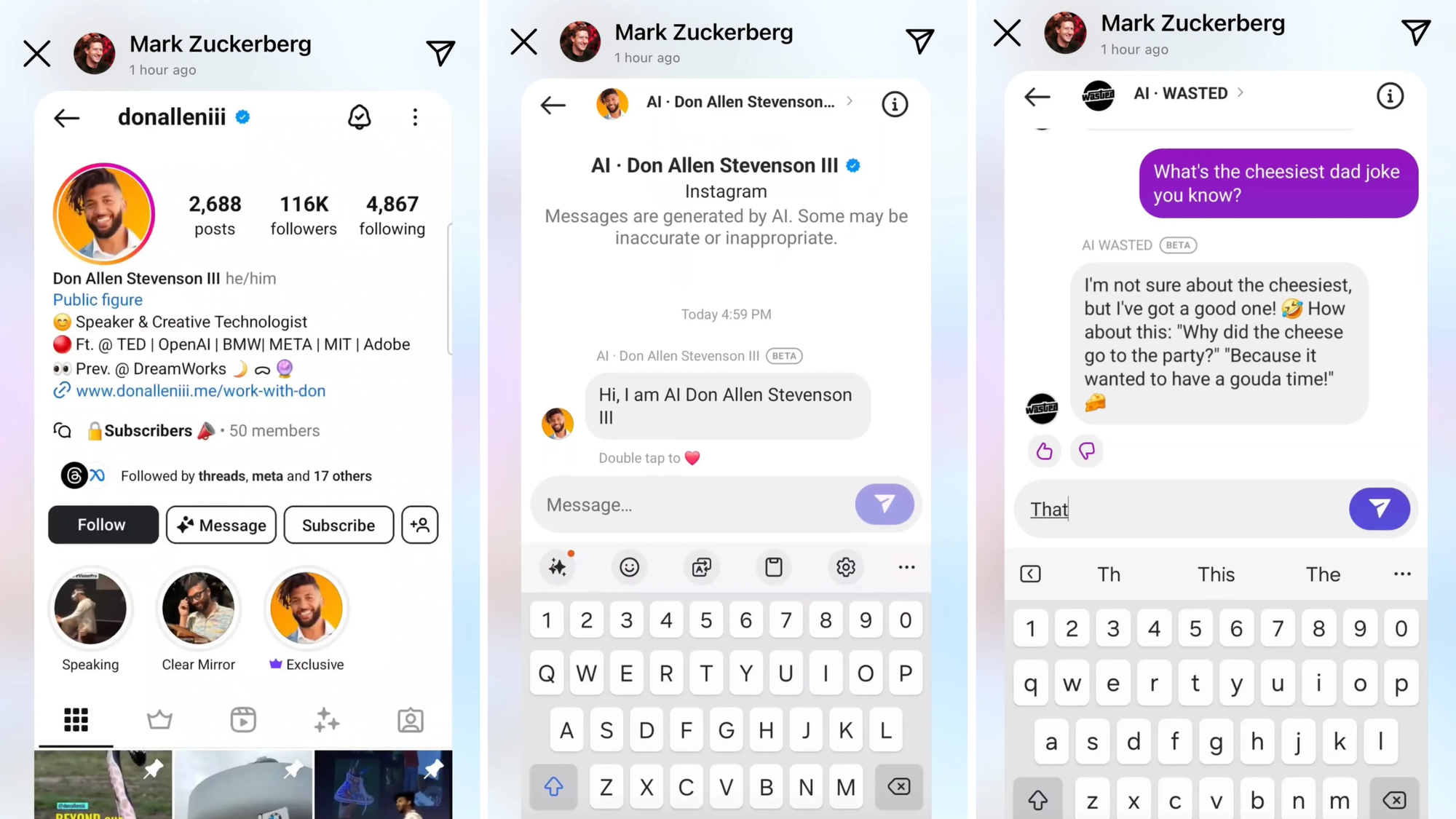Strategy Without Research Isn't Strategy—It's Expensive Guessing
This is the most expensive mistake in strategic communications: implementing solutions without understanding the problem first.
Rather than focusing on a single, universal AI, the company envisions multiple versions of AI tailored to reflect the various interests and personalities of their users.

Instagram is set to revolutionize the way followers engage with their favorite creators once again. The platform's new "AI Studio" feature, currently in early testing in the US, allows select creators to develop AI chatbot versions of themselves. This tool promises to transform the landscape of social media engagement. While we all know that to be true, is it going to be offering more exciting possibilities or create a less ‘social’ social media?
Mark Zuckerberg, CEO of Meta (Instagram's parent company), announced the initiative on his broadcast channel. He stated that users might soon encounter AI representations of popular creators in their Instagram messaging. These AI chatbots will be clearly labeled as artificial intelligence, with an "AI" prefix before the creator's name and a "beta" tag, ensuring everyone knows that they aren’t interacting with an actual person behind the screen.
The process is pretty straightforward: users can initiate conversations with these AI versions by tapping a "Message" button on the creator's Instagram profile. A notice at the top of the chat will remind users that the messages are AI-generated and may contain inaccuracies or inappropriate content (a hint at the possible downside of these bots).

Zuckerberg emphasized that Meta has been collaborating closely with creators to develop these AI chatbots. He even shared some example conversations to show us how it works. The goal is to create a helpful tool that can address common follower questions and engage in useful and entertaining conversations. This early beta version is expected to undergo continuous improvements before becoming more widely available.
The introduction of AI chatbots matches Meta's broader AI strategy. Rather than focusing on a single, universal AI, the company envisions multiple versions of AI tailored to reflect the various interests and personalities of their users.
This approach is similar to what Elon Musk plans on doing with X (formerly Twitter). Social media platforms are trying to create an all-in-one user experience. Capitalizing on this new technology and offering it in fun and innovative ways is helping create a place where users can get info, connections, and entertainment related to anything and everything.
Looking ahead, Meta plans to extend this technology beyond individual creators to small businesses, enabling them to create AI representatives for customer interactions. The company also intends to allow users to create AI characters that aren't necessarily based on real individuals, further expanding the potential applications of this technology.
While the concept of AI-creator chatbots is interesting, it raises both intrigue and criticism:
Pros:
Cons:
As Instagram rolls out this feature, we will have to monitor its impact on user experience, creator-follower relationships, and the overall social media experience. The success of AI Studio will likely depend on finding that delicate balance between innovation and that authentic human connection that people still look forward to and go to these sites for.
While the introduction of AI chatbots represents an exciting step forward in social media technology, it also serves as a reminder of the rapidly evolving digital landscape. As users, creators, and platforms navigate this new terrain, ongoing dialogue about the ethical implications and best practices for AI integration in social media will be essential.
One thing is clear: the future of social media is set to become even more intertwined with artificial intelligence. Whether this development will ultimately enhance or complicate our online experiences remains to be seen, but it's certain to reshape the way we think about digital communication and influencer culture.